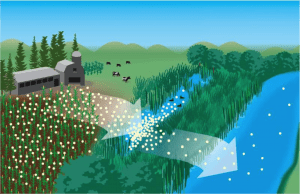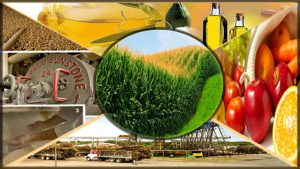What is it?
Bone Meal is a dry powder made from crushed and ground bones. Typically, the source is bone from cattle processing plants. The bones are generally cooked or steamed, dried, and then crushed and ground (either coarsely or finely).
What is the primary benefit?
Bone Meal is a great source of phosphorus. It is also a good source of calcium.
How is it used?
It can be added to the soil at anytime of the year, but often it is used during planting individual plants (very common with bulbs and roses). It is typically sprinkled into the planting hole. On existing plants, it can be applied once a year as it is a very slow release fertilizer. It is usually sprinkled over the surface of the soil, under the mulch layer, and lightly worked/blended into the soil. The mulch layer is then replaced.
Application:
If you soil has adequate nitrogen levels: 10 lbs per 1,000 square feet
If you soil has medium nitrogen levels: 20 lbs per 1,000 square feet
If you soil has low nitrogen levels: 30 lbs per 1,000 square feet
or
about 3-7 cups per 100 square feet
or
from 1/2 tablespoon (per bulb or small plant) to 1/2 cup per rose bush
or
1/2 cup per each 1/2 inch truck diameter of tree
Composition:
NPK Ratio: 1-11-0, but some can have content ranging from 1-13-0, 4-12-0, or 6-12-0 depending on the source… but it is basically a high natural source of phosphate.
20-25% total phosphate
24% calcium
Note:
Bone Meal, when used as an animal feed, may be a vector for transmitting prion diseases. The most well known prion disease is bovine spongiform encephalopathy (BSE), aka “Mad Cow Disease”. It is thought that sheep bone meal, when fed to cattle, caused a cross-species spread of a prion disease. This makes me think two things. First, what in the world were people thinking feeding herbivores (cattle) animal products (sheep)???? Second, examine your sources, and consider using a mask when applying bone meal in your garden or on your land. I am not overly concerned about developing a prion disease from bone meal, but a mask is an easy preventive measure to reduce the bone meal dust we could possibly breathe.
A GENERAL NOTE ABOUT FERTILIZERS:
Always test your soil before adding any fertilizers. We can easily damage our plants and the soil by indiscriminately adding soil amendments.








